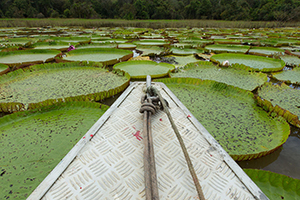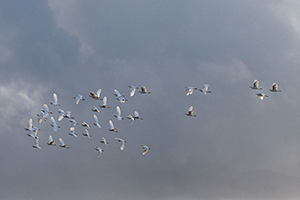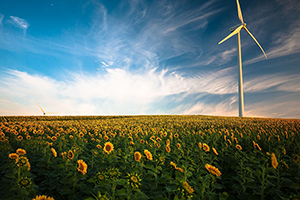The meaning of the word "religion" is "relinking." Religion describes the ways human cultures have sought to create, sustain, and renew links with one another, the world around them, and the powers or reality that lies behind it all. In this six part series, we explore how United Methodists seek to sustain and renew our links to our living world.

Our Living World: Animals
The commandment from Genesis 1:28 mentions fish first, then birds, then living things on the earth. United Methodists take seriously the charge to be good stewards of all animal life.
READ STORY 
Our Living World: Plants
Plant life provides both the food and the oxygen upon which all other life depends. United Methodists are called to protect the habitats and diversity of plants around our living world.
READ STORY 
Our Living World: Water
All ecosystems in our living world depend on water and life itself is mostly composed of water. United Methodists are called to ensure access to water and protect supplies of safe water for all life in our living world.
READ STORY 
Our Living World: Land
The first calling of human beings is to co-inhabit the land with all other creatures. The call to subdue the land and take dominion over the animals is in service to the well-being of the land itself and all creatures in our living world.
READ STORY 
Our Living World: Air
The creation accounts in Genesis do not mention the creation of air. We often take it for granted until something about it discomforts us. This invisible gift supports nearly all creatures in our living world.
READ STORY 
Our Living World: Energy
God provided energy for life on our planet through sun, wind, and water. Human-generated energy from fossil fuels and the patterns of human activity that depend on those fuels now imperil all life in our living world.
READ STORY Ask The UMC is the information service of United Methodist Communications.





